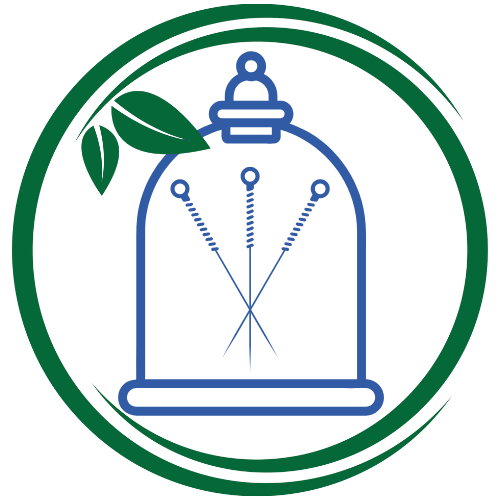Sleepless Nights? Here’s How Acupuncture Can Help with Insomnia Relief
If you’ve ever spent the night tossing and turning, staring at the ceiling as the hours crawl by, you’re not alone. Insomnia affects millions of people worldwide, interfering with both physical and mental well-being. Insomnia can involve difficulty falling asleep. It can also be about staying asleep or waking up too early and being unable to fall back asleep. This condition can be incredibly frustrating and draining.
While medication is a common go-to solution, many are turning to natural alternatives to avoid side effects or dependency. One such holistic approach gaining popularity for relief from insomnia is acupuncture — a centuries-old practice rooted in Traditional Chinese Medicine (TCM).
What Is Insomnia?
Insomnia isn’t just an occasional sleepless night. It’s a persistent condition that disrupts a person’s ability to get adequate sleep. Insomnia can be short-term (acute) or it can last for weeks, months, or even years. Causes vary widely. They include stress, anxiety, and depression. Medical conditions and medications also contribute. Lifestyle factors like excessive screen time or irregular sleep schedules can be causes as well. The condition can affect people of all ages, but it tends to be more common as people get older.
Chronic sleep deprivation doesn’t just make you tired; it affects your concentration, mood, immune function, and long-term health. That’s why finding a safe, effective way to get relief from insomnia is crucial.
Menopause and Insomnia
Another common cause of insomnia in women are the hormonal changes associated with menopause. There are a few different ways in which menopause can contribute to sleep issues.
Declining levels of estrogen can cause hot flushes or night sweats. These temperature changes can disrupt the sleep cycle. Some women wake as their body temperatures rise. Other women wake when the drying sweat gives them a chill.
Estrogen levels are also linked to urinary health. Another reason women (and men) wake during the night is the urge to urinate. This urge is called nocturia and can occur multiple times in the night. The lack of estrogen can create vaginal dryness. It can also lead to urinary tract infections. These issues might be another cause for poor sleep.
Acupuncture for Insomnia Relief
Acupuncture involves the insertion of very thin needles into specific points on the body to promote balance and stimulate healing. In Traditional Chinese Medicine (TCM), insomnia is often linked to imbalances in the body’s “Qi” (energy flow). These imbalances particularly involve the heart, liver, and kidneys. By targeting these organ systems, acupuncture works to restore harmony and improve sleep quality.
Here are some of the key benefits of acupuncture for insomnia:
1. Reduces Stress and Anxiety
Many cases of insomnia are tied to chronic stress or emotional distress. Acupuncture has been shown to regulate the nervous system and reduce the production of stress hormones like cortisol. It can also stimulate the release of endorphins and other neurotransmitters associated with the parasympathetic (“Rest & Digest”) response. This creates a calm state that can help the body transition into restful sleep.
2. Improves Sleep Quality
Some sleep aids may help you fall asleep but leave you groggy in the morning. In contrast, acupuncture has been found to enhance both the quality and duration of sleep. It does so without negative side effects.
3. Promote Better Blood Circulation
By improving blood circulation, acupuncture can help relax muscles. This can reduce physical discomfort, such as pain or tension that might be waking you. Improved circulation brings fresh nutrients to all body tissues to aid in the healing process as well.
4. Customized Treatment
Every person is different. Acupuncturists develop personalized treatment plans based on the root cause of your insomnia. The treatment addresses not just the symptoms but the underlying imbalances in the body.
What to Expect in a Session
A typical session lasts between 45 and 60 minutes. After a consultation, the acupuncturist will insert needles at specific points — commonly on the head, hands, feet, and ears. The process is generally painless and deeply relaxing. Many people report feeling calm or even sleepy after a session.
A Complement, Not a Cure-All
While acupuncture is highly effective for many, it works best as part of a broader strategy that includes good sleep hygiene, stress management, and a balanced lifestyle. Combining acupuncture with practices like meditation, yoga, and cognitive behavioural therapy for insomnia (CBT-I) can provide even more profound and lasting results.
Creating good sleep hygiene habits is a great place to start when trying to get relief from insomnia. Begin by establishing a regular sleep schedule so that you are going to bed and waking up at the same time every day. Make sure your sleep environment is dark, quiet and cool. The body needs to cool off a couple degrees in order to sleep so make sure the room is cool and blankets are not too heavy. Other tips include: avoiding heavy meals, caffeine and alcohol before bed, limit screen time at least an hour before bed and keep heart rate low as you approach bedtime (so no hard workouts, housework or scary movies).
Final Thoughts
If you’re struggling with insomnia and looking for a natural, drug-free approach, acupuncture may be worth considering. With its ability to calm the mind, balance the body, and promote deep, restorative sleep, it offers a gentle yet powerful solution to sleepless nights.
Sleep well — your body and mind deserve it.
Image by WOKANDAPIX from Pixabay






